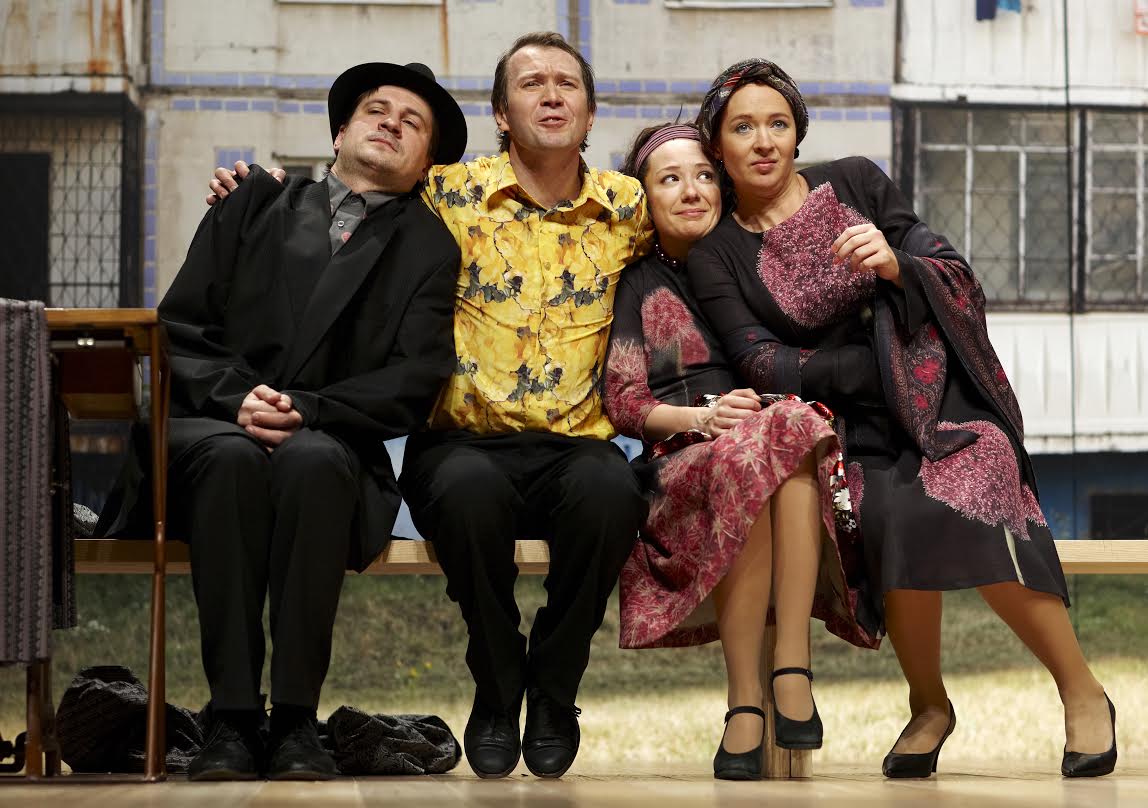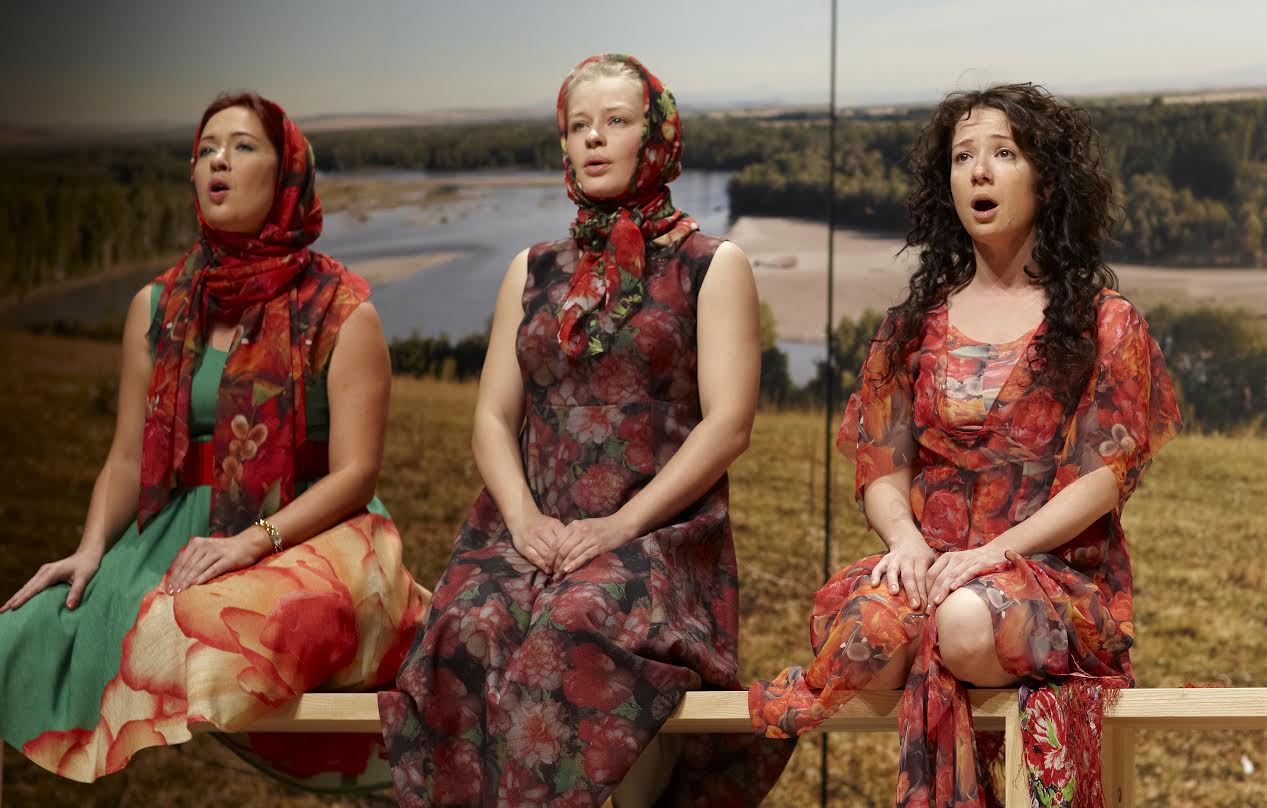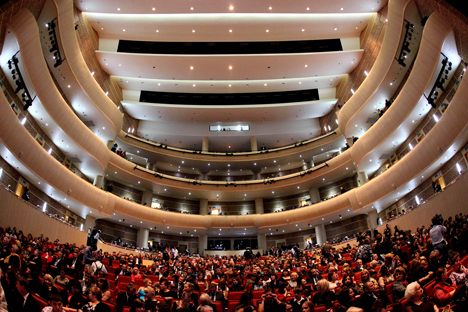Moscow theater takes tales of Siberian ploughboys to New York

Based on the famous stories of Vasily Shukshin, this vivid and witty production comprises 10 vignettes full of love, humor, nostalgia, laughter, and authenticity.
Press photoBorn in the remote Altai region, Soviet author Vasily Shukshin was a real Siberian original. And all the characters in his stories and movies, where Shukshin was the screenwriter, director and an actor, were also common people, ploughboys, "cranks" who lived not by calculations but by the heart.
These funny and sometimes ridiculous characters were so loved by readers and viewers, because they differed from the ideologically correct heroes of Soviet literature and cinema.
At the Theater of Nations in Moscow, these essentially Russian stories were directed by a foreigner – the head of the New Riga Theater, Latvian Alvis Hermanis. It was under him that the Theater of Nations started its cooperation with world-famous masters such as Thomas Ostermeier, Robert Lepage and Bob Wilson.
To better understand their characters, the director and the actors went on an expedition to the author's home in the village of Srostki in the Altai Territory, which lives almost the same leisurely patriarchal life as half a century ago. Artist Monika Portmale made a series of photographic portraits of local people there; now they not only decorate the performance, but set its tone.
Siberian clownery
It is difficult for modern metropolitan actors to look so faithful and natural on the stage, and they do even not try to project themselves into the inhabitants of Siberian villages. They play Shukshin's cranks excitedly, without hiding the pleasure they are deriving from acting the role.
 Source: Press photo
Source: Press photo
It has been a long time since the Russian theater has seen such daring and contagious clownery as that staged by Yevgeny Mironov and Chulpan Khamatova when they depict scenes from the family life of the Soviet farmers. In each of the 10 short stories, they are transformed beyond recognition.
Colorful costumes and distinctive makeup create an atmosphere of fun-filled carnival, while the actors' antics make the audience heave with laughter. But the actors and the director treat their characters with tenderness and love, simultaneously mocking them and sympathizing with them.
However, the series of farcical, almost slapstick routines also contains dramatic and even tragic episodes, such as the one in which a prisoner escapes from jail only three weeks before the end of his term, or the one where a young country boy commits suicide after failing to find himself in a big city.
These moments make clear the hopelessness of these simple-minded and open people in today's calculating and cynical world.
‘We're playing in the heart of theatrical New York’
It is no coincidence that Shukshin's Stories is popular with very different audiences – critics as well as intellectuals and housewives, students and seniors. Not only did the hit play become the theater's signature production, it even won a Golden Mask, Russia's premier theater award.
The performance is always a success when it goes abroad. During the last eight years, it has traveled halfway around the world, visiting festivals in Vienna, Berlin, Hanover, Helsinki, the Baltic states, Israel, France, Poland, the Netherlands and even Chile, and finally making it to the United States.
'We have long wanted to show our performances to the New York public," said Yevgeny Mironov, the head of the theater.
"Last year, the Theater of Nations was invited to the famous Lincoln Center Festival with Miss Julie. It was received very well by the public, and then another New York festival, The Cherry Orchard, came up with an idea to invite us, this time with Shukshin's Stories.
"It is very important for us that this is not just some Brighton [Beach, the Russian-Jewish neighborhood in Brooklyn] tour – we're playing in the heart of theatrical New York, at the famous City Center, near Carnegie Hall. This venue is already familiar to us, we played Miss Julie at the same theater,” said Mironov.
"Certainly, there will be many Russian immigrants, but from last year's experience, I can say that the Americans are willing to come to performances from Russia, too.
“Maybe theater-goers know the name of Alvis Hermanis. Some Russians will come because of Shukshin, [although] his name, alas, says little to Americans. But we hope that the tour will open the work of our great writer to America, at least a little," he said.
Read more: From satire to slapstick: Global audiences' reactions to Daniil Kharms>>>
Subscribe to get the hand picked best stories every week
All rights reserved by Rossiyskaya Gazeta.
Subscribe
to our newsletter!
Get the week's best stories straight to your inbox
